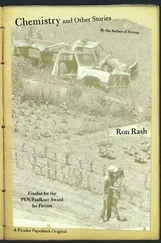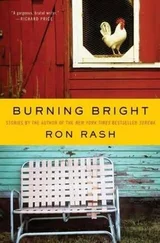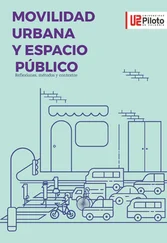Henryson stood and stretched his back, looked over at his prone foreman.
"I see you found a patch to cover that space you had on your pants pocket, Snipes," Henryson said. "Is it purple or red? It appears to my eye somewheres betwixt them."
The men turned as one and contemplated the deranged rainbow that now covered every inch of their foreman's overalls.
"It's mauve," snipes said.
"I never heard of no such color," Dunbar said.
"Well," Snipes retorted. "You're looking right at it."
"No disrespect, Snipes, but I still can't see the wearing of such a outfit," Dunbar said. "You look like you been sewed up in a crazy quilt."
"I done explained the science behind it, same as I explained what darksomeness can do to a man," Snipes said, sighing deeply. "It's ever been the way of the man of science or philosophy. Most folks stay in the dark and then complain they can't see nothing."
Snipes folded his newspaper and rose, an unhinging brightness. He did not look at his crew but gazed eastward, as if communing with the spirits of his intellectual forbearers who, like him, had carried the lantern of enlightenment among those who wished only to snuff it. Ross struck a match on his boot heel and lit his cigarette. He held the match before him and watched it burn down to his finger and thumb, then extinguished it with a quick flick of his wrist, blew the wisp of smoke in Snipes' direction.
"Galloway's back," Dunbar said.
"There's some darkness for you, Snipes," Ross said. "It's like as if a black pall gets draped on everything he passes."
"That's the God's truth," Dunbar agreed.
"Or the devil's," Henryson said.
"I heard when that hand of his hit the ground it kept opening and closing like it was trying to strangle somebody," Dunbar said. "Kept on doing that for near five minutes."
"I'd not doubt it," Stewart said.
"Nobody'd touch that hand even after it quit moving," Dunbar added. "For all I know it's still out in them woods where it fell."
"I'd not have picked it up," Henryson said, "leastways without a pair of tongs and a glove."
"I'd sooner pet a mad dog than touch that hand," Dunbar said. "What Galloway's got is a sight worse than the rabies."
"I'd not argue that," Ross said, tapping ash off his cigarette. "I'm just glad he's working on the other front, and her that thought him worth saving being over there as well."
Several men murmured in assent.
"They's some claim it wasn't a tourniquet stopped that bleeding," Dunbar noted. "She just commanded it to stop and not a drip flowed out after that."
Stewart grimaced. "I'd just as lief not heard about Galloway's hand opening and closing, nor any of the rest of it. It'll be fretting me the rest of the day."
"Well, if we work hard we'll be out of this gap by tomorrow and we'll all be feeling better," Snipes said, checking his watch. "Time to get back to it."
Dunbar and Ross followed their foreman across the creek to a yellow poplar that was the biggest tree in the gap. Snipes notched the tree to fall opposite where the crew worked, aiming it so as not to snag on a cliff hang. Dunbar and Ross used the eight-foot cross-cut saw, and Snipes used the biggest wedge. As the poplar fell, its branches hit a neighboring sycamore and snapped free a piece of limb thick and long as a fence rail. Minutes passed as the limb dangled sixty feet up in the sycamore's higher junctions, one end quilled with smaller branches, the other sheared to a narrowing sharpness. Then it slipped free only to be caught again a few inches farther down, the sharp end tilting earthward as the limb hung in abeyance a few moments longer, as if deciding.
The limb fell toward Dunbar, whose back arched as his ax struck wood the same instant the sycamore limb entered between his collar bone and spine. Dunbar's face smashed against the ground as his knees hit, the rest of his body buckling inward. The white limb had not snapped or slipped free from the flesh. It remained embedded in Dunbar's back like a stalled lightning bolt, and as the limb's angled weight succumbed to gravity, Dunbar's body slowly, almost reverently, lifted to a kneeling position, as if to be given a last look at the world. Snipes knelt and laid his hand on the dying man's shoulder. Dunbar's eyes shifted in awareness of Snipes's presence, but as he left the world he offered no last words or even a final sigh, only one tear that welled in the corner of his right eye before slowly rolling down his cheek. Then he was dead.
***
"IT seems the men are getting killed at a rather pro digious rate these last few weeks," Doctor Cheney said that evening at dinner. "When Wilkie and Buchanan were here, there seemed to be fewer deaths."
"The men are working steeper inclines now," Serena said, "and the heavy rains make the footing tenuous."
"Much more rain than the previous years," Pemberton added.
Doctor Cheney raised his fork and knife and cut a rind of fat from his piece of ham.
"Ah, so that's the difference. Anyway, this continuing depression assures ready replacements. Men will ride a boxcar two hundred miles just on the rumor of work. I saw twenty or so at the train depot just yesterday. They were ragged as scarecrows and nearly as gaunt."
There was a knock on the door, and two young women came in with cups and a coffee pot. As the servers left, Doctor Cheney saw Galloway standing beside the office window. The light was not on, and Galloway stood so motionless as to appear a thicker shadow among other shadows.
"This latest addition to your menagerie, Mrs. Pemberton, he seems more dog than man the way he follows you about," Doctor Cheney said, lifting a piece of ham with his fingers and holding it as if he might fling it onto the office floor. "Do you allow Galloway to eat table scraps?"
Serena raised the coffee cup to her mouth and tipped it lightly. Pemberton watched as the gold flecks in Serena's irises sparked. She set the cup down, only then turned to acknowledge Cheney had spoken to her.
"First an eagle, now a two-legged dog," Doctor Cheney continued. "You acquire the strangest pets, Mrs. Pemberton, and yet you train them so well. Do you think you could teach one of those comely maidens who just retrieved our dishes to follow me to bed each night?"
"To what purpose, Doctor?"
"A remedy for their maidenhood."
Serena closed her eyes for a moment and then reopened them, as if to focus better on Cheney before she spoke. Her gaze became placid, the irises revealing only a gray muted disdain.
"But such a cure is beyond any nostrum you possess," Serena said.
"My lady, your jests are rather unjust." Cheney said, adopting a mockingly archaic tone. "And they lack humor."
"The lack of humour is yours, Doctor, not mine. Yours is choleric while mine's phlegmatic."
"A rather antiquated form of diagnosis," Cheney said.
"In some ways," Serena answered, "but I believe it still applies to the essence of our natures. Fire found fire when Pemberton and I met, and that will be the humour of our child."
"How can you be so sure?" Cheney asked. "Your own parents misconstrued your nature."
"How so?"
"Your Christian name."
"Another jape your lack of humor missed," Serena said. "My parents named me before I left the womb, because I kicked so fiercely to get out."
"But how did they know you'd be a female?"
"The midwife told them."
"A midwife told them," Doctor Cheney mused. "Colorado sounds even more medieval than western Carolina."
Cheney dabbed his mouth with a napkin and stood. He glanced out the window.
"There's light enough to search a creek for leeches," he commented dryly. "Perhaps after that I'll read up on my phrenology. Then early to bed. No doubt more casualties will come Monday."
Doctor Cheney stood and took a last swallow of coffee and left the room. Good dog, Cheney said to Galloway as he passed through the office. Pemberton looked at Serena's waxing belly. Fire finding fire, he thought, repeating Serena's words to himself.
Читать дальше












